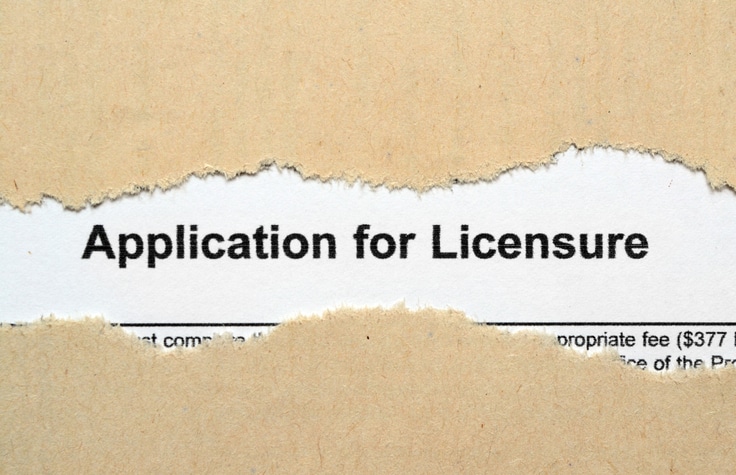Embarking on a career as a Certified Public Accountant (CPA) in California is a fulfilling journey that offers excellent prospects, financial stability, and professional growth. The process involves meeting specific California CPA requirements, including educational requirements, passing the California CPA Exam, gaining professional experience, and navigating the CPA licensure process.
In this article, we’ll provide a detailed roadmap on how to become a CPA in California, ensuring you understand every step.

Table of Contents
1. Meeting Educational Requirements
The Basics of Education
The first step to becoming a CPA is fulfilling the stringent educational requirements set by the California Board of Accountancy (CBA). Here’s what you need:
- Earn a Bachelor’s Degree
- A bachelor’s degree from an accredited college or university is mandatory. This degree forms the foundation for your future accounting career.
- Complete 150 Semester Units
- While a bachelor’s degree typically requires 120 semester units, California requires candidates to include an additional 30 units.
- Breakdown of education requirements:
- 24 units of accounting subjects (e.g., financial accounting, taxation, auditing, and accounting technology).
- 24 units of business-related subjects, such as business law, economics, finance, and management.
- 20 semester units of accounting study, including courses on ethics, fraud examination, or general business.
- Ethics and Responsibility
- A focus on ethics is crucial. California CPA candidates are required to complete ethics courses, ensuring they understand accountants’ professional responsibilities under the California Accountancy Act.
- Alternative Paths
- Additional coursework can be completed at community colleges or through specialized programs to meet the 150-unit requirement.
Planning Your Education
- Begin planning your coursework early, particularly in high school or college. If you’re pursuing a degree in business administration or finance, ensure your electives align with CPA eligibility criteria.
- Explore dual-degree or accelerated programs that allow you to earn the additional semester units while completing your bachelor’s degree.
2. Passing the Uniform CPA Exam
What Is the Uniform CPA Exam?
The Uniform CPA Exam evaluates a candidate’s expertise in accounting and their readiness to handle real-world scenarios. It’s a standardized test administered by the American Institute of Certified Public Accountants (AICPA), with oversight from the California Board of Accountancy.
Eligibility to Sit for the CPA Exam
To take the CPA exam, candidates must have general accounting experience as well as have a Bachelor’s Degree and complete the following:
- 24 semester units of accounting subjects.
- 24 units of business-related subjects.
Structure of the CPA Exam: The New Evolution
The CPA Exam underwent a significant evolution to align with the changing demands of the accounting profession. This modernized format emphasizes critical skills in technology, data analysis, and specialized knowledge areas. The new exam structure, implemented in 2024, consists of three core sections and three discipline sections from which candidates select one.
Core Sections (Mandatory for All Candidates)
- Auditing and Attestation (AUD):
- Tests understanding of auditing principles, internal controls, risk assessment, and compliance with ethical standards.
- Financial Accounting and Reporting (FAR):
- Focuses on preparing and analyzing financial statements, revenue recognition, lease accounting, and other essential skills.
- Taxation and Regulation (REG):
- Combines elements of taxation, business, and regulatory ethics, focusing on compliance and advisory services.
Discipline Sections (Candidates Choose One)
- Business Analysis and Reporting (BAR):
- Ideal for candidates aiming for careers in financial planning, reporting, or consulting. Topics include data analytics, complex financial reporting issues, and critical decision-making.
- Information Systems and Controls (ISC):
- Designed for those interested in IT auditing or cybersecurity. Focuses on system controls, technology implementation, and data governance.
- Tax Compliance and Planning (TCP):
- Targets candidates focusing on taxation, estate planning, and advisory services, covering advanced tax strategies and compliance.
Key Updates in the New CPA Exam
- Flexibility for Specialization: By introducing discipline sections, the new format allows candidates to align their CPA certification with their goals.
- Enhanced Focus on Technology: Topics such as data analytics and IT system controls are emphasized to address modern business needs.
- Streamlined Content: The core sections ensure all CPAs have a solid foundation, while discipline sections add depth in specific areas.
Preparing for the Updated Exam
- Candidates should thoroughly review the updated content and select the discipline that best fits their aspirations.
- Updated review materials, such as those offered by Becker or Wiley, now include comprehensive resources on the new discipline sections.
- Familiarize yourself with the new format through practice exams and tools provided by the AICPA.
Tips for Success
- Study Plans: Use top-rated CPA review courses such as Becker or Wiley.
- Practice Tests: Familiarize yourself with the exam format through mock exams.
- Accountability: Join study groups or work with a study partner to stay motivated.
Exam Logistics
- The exam is offered year-round at Prometric testing centers.
- Candidates must pass all four sections within an 18-month window.
Challenges and Retakes
- If you don’t pass a section, don’t worry. You can retake it, though this will require an additional fee and preparation. Some candidates need multiple attempts before passing all sections.
3. Gaining Professional Experience
California CPA Work Experience Requirements
To qualify for a California CPA license, you must complete professional experience under the guidance of a licensed CPA. Internships, contract work, and volunteer work all count toward the experience requirement.
Key Requirements
- Duration: 12 months or 2,000 hours of relevant experience.
- Supervision: A licensed CPA must verify your experience.
- Eligible Experience: Work in public accounting firms, corporate finance departments, or governmental agencies counts. Teaching accounting at the college level also qualifies.
Skills Assessed
Your work must demonstrate proficiency in:
- Preparing financial statement analysis.
- Applying accounting principles to solve complex problems.
- Communicating findings to clients or stakeholders.
Maximizing Your Experience
Consider seeking internships or entry-level roles during your academic journey. This not only provides relevant experience but also helps you build connections in the accounting industry.
4. Applying for CPA Licensure
Once you’ve met the education, exam, and experience requirements, the next step is submitting your CPA license application.
Steps to Apply
Upon approval, you’ll receive your California CPA license, allowing you to practice as a licensed CPA. In California, CPA applications take about 4-6 weeks to process.
Create an Account with the California Board of Accountancy
Submit official transcripts, verified work experience, and your CPA exam results.
Pay the $100 application fee.

Application Review
The California Board of Accountancy reviews your application for compliance with the California Accountancy Act.
Ethics Exam
Pass the ethics exam, a crucial component of the CPA that tests knowledge of ethical standards and accountants’ responsibilities.
Ethics Exam for CPA Licensure in California
The ethics exam is an essential part of the CPA licensure in California. Known as the Professional Ethics for CPAs (PETH) exam, it evaluates a candidate’s understanding of the ethical standards and professional conduct expected of a licensed CPA. The exam consists of 50 multiple-choice questions and is designed to test knowledge on ethics, professional conduct, and the rules established by the California Board of Accountancy (CBA). Candidates must achieve a score of 90% or higher to pass. If a candidate does not pass the exam on their first attempt, they are allowed to retake it, with six attempts allowed, though the exam must be passed before applying for licensure. The cost of the ethics exam is $175 for the online version. The ethics exam can be ordered online from CALCPA. This exam must be completed in addition to passing the CPA Exam in order to receive a California license.
5. Maintaining Your CPA License
License Renewal
A CPA license must be renewed every two years. The renewal process includes:
- A $340 renewal fee.
- Completion of 80 hours of continuing professional education (CPE) with a minimum of 20 of the 80 hours completed each year.
Continuing Education requirements
Continuing Professional Education (CPE) is crucial for maintaining a CPA license and staying updated in the evolving field of accountancy. Over a two-year period, CPAs must complete 80 hours of CPE, with a minimum of 20 hours each year. CPE courses cover a range of critical topics, including updates on emerging tax regulations, new accounting standards, financial changes, and advancements in technology such as data analytics and cybersecurity. CPAs can fulfill these requirements through seminars, online courses, or industry conferences, ensuring they remain competitive and compliant with California regulations.
Online Courses and Webinars
- Description: Flexible, self-paced learning options from platforms like Becker, Surgent, NINJA CPE, and AICPA.
- Topics: Cover updates in accounting standards, ethics, and specialized fields like forensic accounting or data analytics.
- Benefits: Convenient and often tailored to fit individual schedules.
University and College Courses
- Description: CPAs can take individual courses at accredited colleges, including business courses, to meet CPE requirements.
- Topics: Advanced coursework in business law, financial reporting, or accounting ethics.
- Benefits: Provides in-depth knowledge and may count toward other certifications.
6. Frequently Asked Questions
What Are the Benefits of Becoming a CPA in California?
- Higher earning potential compared to non-certified accountants.
- Increased opportunities in public accounting, corporate finance, and consulting.
- The ability to sign audits and provide specialized financial services.
Can I Retake the California CPA Exam?
Yes, you can retake sections you don’t pass within the 18-month window.
What Happens if I Don’t Meet the 150-Unit Requirement?
You can continue taking courses at an accredited college or university until you meet the requirement.
7. Additional Tips for How to Become a CPA in California
- Plan Early: Start fulfilling education requirements during your undergraduate studies to save time later.
- Network: Join professional organizations like the California Society of CPAs to connect with mentors and peers.
- Specialize: After obtaining your CPA license, consider pursuing certifications in areas like forensic accounting or taxation to enhance your business prospects.
Long-Term Career Development
- Explore areas like corporate accounting, forensic accounting, or auditing for specialization.
- Stay updated on changes to tax laws and accounting standards through continuous learning.
Conclusion
The path to becoming a CPA in California is rigorous but rewarding. By meeting the California CPA requirements, passing the Uniform CPA Exam, completing professional experience, and maintaining your CPA license, you’ll unlock unparalleled opportunities in the dynamic field of accountancy.
Whether you aim to work in public accounting, corporate finance, or as a private consultant, the CPA designation provides a competitive edge. Start your journey today and join the ranks of successful certified public accountants!